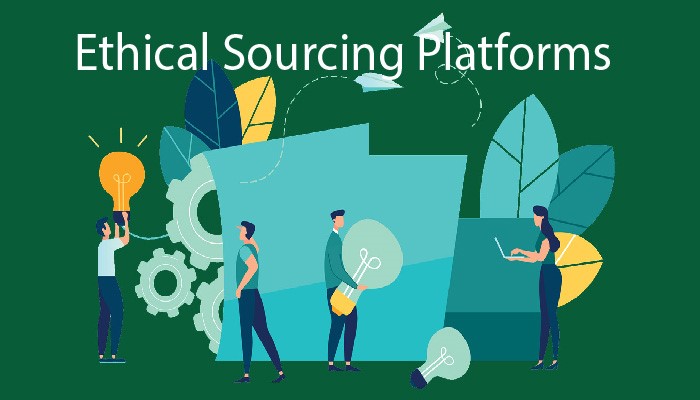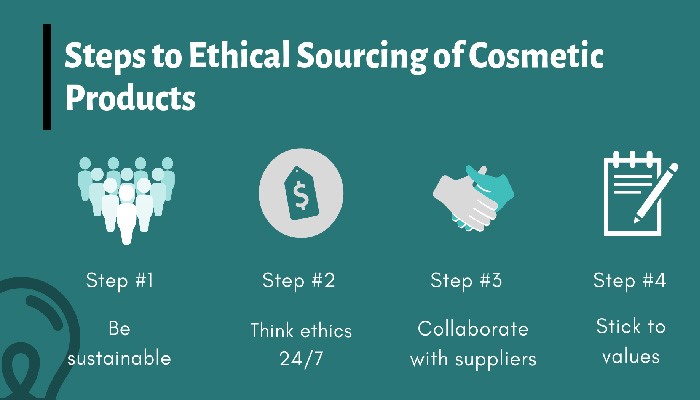Navigating the Terrain of Ethical Sourcing Platforms: Ensuring Transparency and Responsibility
In a global marketplace where consumers increasingly demand transparency and responsibility from businesses, ethical sourcing has emerged as a paramount concern. Ethical sourcing platforms have become instrumental in connecting conscientious consumers with businesses committed to ethical practices. These platforms aim to promote sustainability, fair trade, and social responsibility throughout the supply chain. In this article, we delve into the significance of ethical sourcing platforms, their features, challenges, and the impact they have on shaping a more ethical and sustainable future.

Understanding Ethical Sourcing Platforms
Ethical sourcing platforms serve as intermediaries between consumers and businesses, facilitating transactions that prioritize ethical considerations. These platforms vet suppliers to ensure compliance with ethical standards, which may encompass fair labor practices, environmental sustainability, animal welfare, and community engagement. By providing a curated marketplace of ethically sourced products, these platforms empower consumers to make informed purchasing decisions aligned with their values.
The Importance of Transparency and Accountability
Central to the ethos of ethical sourcing platforms is transparency. They strive to provide comprehensive information about the products they offer, including details about their origins, production processes, and the impact on stakeholders. Transparency fosters trust between consumers and businesses, enabling consumers to verify the ethical claims made by suppliers and hold them accountable for their practices. Moreover, it encourages continuous improvement as businesses are incentivized to enhance their ethical performance in response to consumer scrutiny.
Key Features of Ethical Sourcing Platforms
- Supplier vetting and Certification: Ethical sourcing platforms rigorously assess suppliers to ensure compliance with ethical standards. Certification schemes, such as Fair Trade or Organic, serve as benchmarks for evaluating suppliers’ adherence to specific criteria related to social and environmental responsibility.
- Traceability and Supply Chain Visibility: These platforms prioritize traceability, allowing consumers to trace the journey of products from source to sale. By providing visibility into the supply chain, consumers can ascertain the ethical credentials of products and verify claims regarding fair labor practices, sustainable sourcing, and environmental impact.
- Educational Resources and Advocacy: Ethical sourcing platforms often serve as educational hubs, offering resources to raise awareness about ethical issues in supply chains. They advocate for sustainable and ethical consumption practices, empowering consumers to become more discerning and responsible shoppers.
- Community Engagement and Empowerment: Many ethical sourcing platforms foster community engagement by supporting marginalized producers and artisans. By connecting consumers directly with producers, these platforms empower communities to earn fair wages, gain access to markets, and improve their livelihoods.
Challenges and Opportunities
While ethical sourcing platforms have made significant strides in promoting sustainability and social responsibility, they face several challenges that warrant attention:
- Scaling Impact: Scaling ethical sourcing initiatives can be challenging, particularly for small businesses and artisanal producers. Ethical sourcing platforms must explore strategies to expand their reach and support a broader network of suppliers without compromising on ethical standards.
- Ensuring Authenticity: With the proliferation of ethical claims in the marketplace, verifying the authenticity of ethical products remains a concern. Ethical sourcing platforms must implement robust verification mechanisms to combat green washing and ensure the credibility of their offerings.
- Balancing Affordability and Ethics: Ethically sourced products often come at a premium, raising questions about affordability and accessibility. Ethical sourcing platforms must strike a balance between promoting ethical practices and making ethical products accessible to a diverse range of consumers.
- Addressing Global Supply Chain Challenges: Ethical sourcing extends beyond individual products to encompass complex global supply chains. Ethical sourcing platforms must navigate geopolitical risks, labor rights issues, and environmental challenges to promote ethical practices across borders.
Despite these challenges, ethical sourcing platforms present immense opportunities to drive positive change in the global marketplace:
- Catalyzing Industry Transformation: By setting high ethical standards and incentivizing responsible practices, ethical sourcing platforms can catalyze industry-wide transformation, encouraging businesses to prioritize sustainability and social responsibility.
- Empowering Consumers: Ethical sourcing platforms empower consumers to vote with their wallets, enabling them to support businesses that align with their values and drive demand for ethically sourced products.
- Fostering Collaboration and Innovation: Collaboration between ethical sourcing platforms, businesses, and stakeholders can spur innovation and foster collective action to address systemic challenges in supply chains.
- Promoting a Culture of Accountability: Ethical sourcing platforms play a crucial role in promoting a culture of accountability throughout the supply chain, encouraging businesses to uphold ethical standards and transparency.
Conclusion: Building a More Ethical Future
Ethical sourcing platforms represent a beacon of hope in a global economy grappling with ethical dilemmas and sustainability challenges. By championing transparency, accountability, and responsible practices, these platforms are reshaping the landscape of commerce and driving positive change. As consumers increasingly prioritize ethics in their purchasing decisions, ethical sourcing platforms stand poised to lead the charge towards a more ethical and sustainable future for businesses, communities, and the planet. Through collaborative efforts and steadfast commitment, we can harness the power of ethical sourcing platforms to build a fairer, more equitable world for generations to come.



